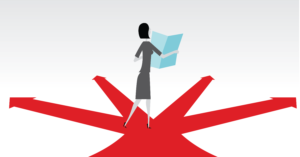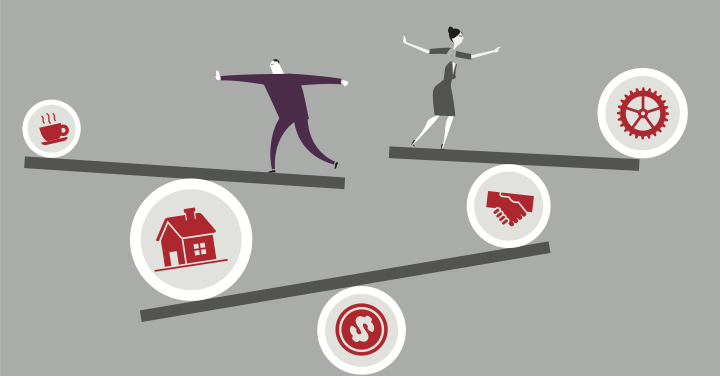Friedrich Nietzsche’s full quote from 1888, “Out of life’s school of war — What does not kill me makes me stronger.”
This quote came to mind as I was listening to Henry tell me his story. Perhaps it will resonate for you as well.
Henry grew up in a middle-class home where his parents sacrificed extensively so that he and his sister could “have everything.” He frequently heard them argue about money and decided early on that financial success was critical so as not to experience these same stressors.
School came easy to Henry, at least easy enough that he could coast and get passing grades. After a physical transition (his family moved states) in his early high school years, he had an awakening and realized that he needed to perform if he was going to achieve financial success. He calls this his first transition. He went from “needing to have others recognize and appreciate my abilities to seeing my own value” and went from a C and D student to straight A’s overnight.
Along the way, Henry discovered he had a knack for numbers and finance which led him, not surprisingly, toward a career in investment banking. He hated it.
So, at age 24, he decided to quit. As luck would have it, his dad called at that exact right time and asked if he would come home and start a business. It seemed a win for both of them. He knew his dad needed money for retirement; he could help his dad and escape the job he hated.
Henry became an accidental entrepreneur. The business they chose played well to both of their strengths, and it did well immediately, better than either of them expected. The growth continued, and Henry believed it would continue forever. As is often the case with immediate success, “I became overly confident in my abilities, some might say arrogant. Frankly, in retrospect, I think I was privately even more inflated than I realized.”
Ten years later, at age 34, all at the same time, they lost a large client, a key employee, and discovered they had severe technical issues that required substantial investment. Henry had just bought a new home and had not yet sold the previous one. And if that weren’t enough, a few months later, he learned his mom was seriously ill, and his father took leave to care for her. Suddenly, the wheels were coming off.
“I learned a lot about myself in the process. I was in my early thirties when things started to unravel, and I went from overconfident and feeling firmly in control of my world – to wondering if I had ever been a success. I began to question whether I could achieve again, and I asked myself if my best days were behind me?”
“Less than a year later, I had a full-on anxiety attack. I spent a month and a half in a full stupor. Having watched my birth family struggle financially, I was determined I would not follow that path.”
Upon reflection, perhaps it was that determination that led to the anxiety attack. A strength over-used?
“I went to see a counselor who told me I was going through a personal transformation and that I would come out of it stronger than when I went in. And, while I didn’t believe it at the time, she was right, of course. People who knew me then and know me now tell me they like, the less arrogant, more thoughtful, more mature me.”
“I learned that despite my perceived confidence in myself, I didn’t have all the answers. It was time to ask questions and to pause and listen to other people’s ideas.”
Henry went back to work, and the business recovered. He bought his father out of the business after he had been absent for two years caring for his mother, who had passed. The company did well enough to afford the lifestyle he wanted, yet something seemed to be missing.
Three years ago, after eight years of record growth, Henry began a quest to better understand his drive for a sense of self-worth. At first, he believed that the missing piece was in the business. “Shouldn’t I be doing more, making more?” he asked himself.
In the last few months, after about a year in the You Pivot™ Program, Henry has greater clarity that self-worth doesn’t come from growing a business. Instead, these drivers of self-worth come from being at peace with who you are and from being in service to others, helping them realize their dreams with the realization that it’s okay to fail.
Today, at nearly fifty years old, Henry feels energized and more balanced. He continues to enjoy leading his business and spending time with his family (his top priority). He volunteers with an accelerator, helping other entrepreneurs grow, and has begun building things in his workshop, something he did with his dad in his youth.
Surprisingly, (or perhaps not), along with his personal energy renewal, has come renewed energy in the business. The business had its best January in a long time, and 2021 is on track to be a great year.
Advice For Others
Sometimes we need to be kicked in the face –– to have to get up and look around a bit, drive down a path and see where we are. Transitions can be painful and can take a while. There is no easy fix, no drug to make it faster. You won’t wake up one day with an aha. Instead, we slowly transition and notice retrospectively that it has happened.
Finding ways to give back to others teaches you so much about yourself –– As business people, we often measure our worth in lockstep with the enterprise’s success. Finding a way to give back to others during a transition can help us find self-worth outside of business, career, and financial reward. See Ego Diversification.
Reach out to others, get a coach, find peers on a similar journey – In my journey, I needed to reach out to a coach, someone I respected, who would tell me the truth and ask me the right questions. As leaders, we may feel weak when seeking advice about ourselves. Everyone is willing to lay themselves bare when seeking counsel for business strategy. Somehow that feels strong, but being vulnerable about ourselves is so much harder.
As leaders, we want to be that strong, capable person. We tell ourselves if I don’t know my direction, how can I have a sense of self-worth? In my experience, it’s when I have felt uncertain that I have benefited the most from reaching out to others and being vulnerable.


 The initial results of my Pivot are excellent. I feel I have much greater clarity regarding the next 3-5 years..
The initial results of my Pivot are excellent. I feel I have much greater clarity regarding the next 3-5 years..  John Yerger
John Yerger